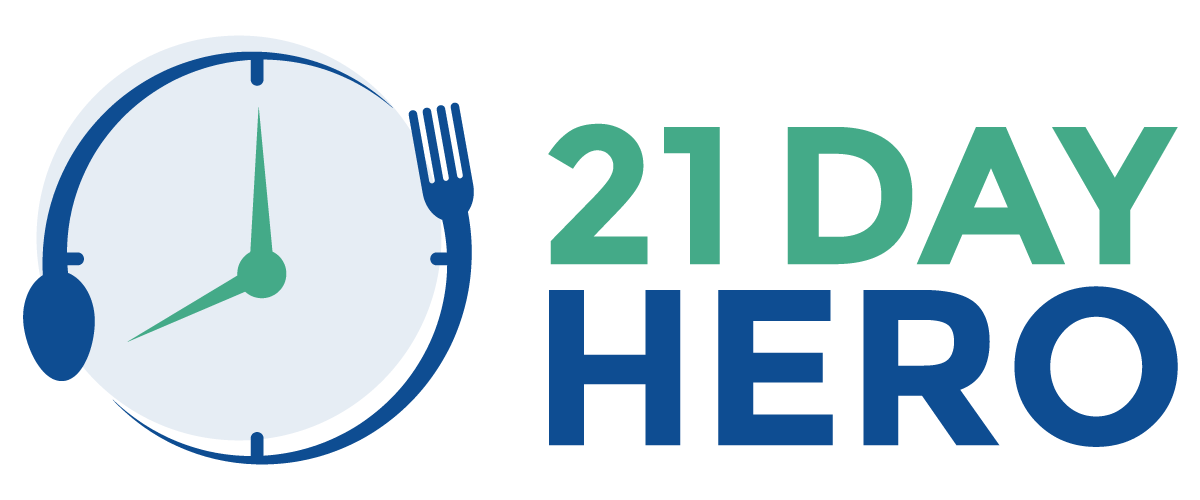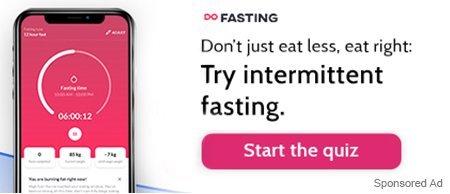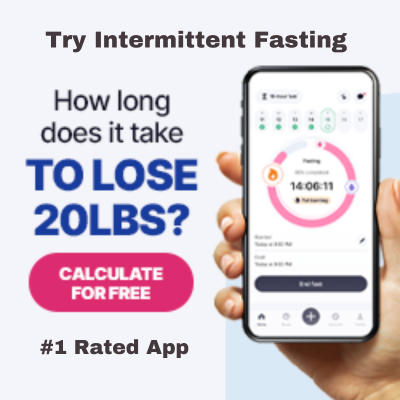Schedule | Calories | Water | Binging | Portion control | Caffeine | Weight loss
Intermittent fasting for weight loss – we can help you with these 7 tips!
While intermittent fasting doesn’t guarantee weight loss, it has worked for many that have tried it and brought several health benefits along with weight loss.
This diet is rapidly growing in popularity and is being closely studied. Scientists and nutritionists have recommended intermittent fasting for weight loss as a safe and healthy way to drop extra pounds.
Since there’s so much information about intermittent fasting available online, a lot of beginners tend to get overwhelmed and confused about the right way to begin.
Are you one of those people? Well, you’re in the right place! In this article, we have combined a list of tips and tricks that you can follow when beginning your intermittent fasting weight loss journey.
Intermittent Fasting For Weight Loss- All You Need to Know!
As the name implies, intermittent fasting is a diet plan where you set up a schedule of fasting periods throughout the day. Simply put, you choose a specific time for eating, and fast in the remaining period. The fasting window can be as little as 12 hours long or even up to 24 hours, depending on the diet plan.
Despite its technical name, following this diet plan is relatively simple. But like every other diet or weight loss plan, it is important that you thoroughly understand what it’s about before you jump in. To make it easier for you to follow, we have broken it down, step-by-step, and thrown in some extra tips to help you achieve the best possible results.
1. Choose The Right Schedule
There are several intermittent fasting weight loss schedules that you can follow, but it is key that you understand each, and choose the one that is right for you.
One of the most popular intermittent fasting plans for weight loss, the 16/8 method also features the easiest schedule for beginners. If you’re new to fasting, we suggest choosing this method, as it will give you the results you desire without challenging you too much.
This method involves fasting every day for 14-16 hours and eating during an 8-10 hours time period. Although going 16 hours without food sounds tough, it is simple if you divide your meals correctly. For example, eat your dinner at 8 pm, and then have your next meal at 12 noon the next day. This way, you’re only skipping breakfast, but are fasting for 16 hours.
Apart from the 16/8, some popular intermittent fasting schedules include the 20/4, the 5:2 and The Warrior.
Do you consider yourself an experienced faster? Are you ready to try out some different fasting schedules? Look no further! You can learn all about these schedules with 21DayHero’s complete guide on intermittent fasting schedules.
2. Consume The Correct Calories
To get the best possible weight loss results with intermittent fasting, make the calories count. If you’re going without food between 16 to 18 hours every day and then binging on high-sugar and fatty foods right after, your efforts will be wasted.
Avoid soft drinks, food with added sugars, junk food, and all other similar snacks that will throw your hard work out the window.

3. Drink Plenty Of Water
Not only does this help control your hunger pangs, but adding a bit of lime juice to your water can also lessen your cravings greatly. Make sure you consume a lot of water, even in the form of coffee or other calorie-free beverages.
4. Binging Is A No-No
Right after you break your fast, binge eating is the last thing you should be doing. We get it – after fasting the whole day, you probably want to devour everything in front of you, but resist the temptation. Binging will only make you feel heavy and lethargic, and will diminish the benefits you get from fasting.
5. Filter Your Diet
For the best possible weight loss results with intermittent fasting, try and lessen your intake of foods such as bread, rice, pasta, etc. Instead, try and incorporate these food categories into your daily diet:
- Fiber, for higher metabolism and better gut health
- Lean protein from beef, fish, or pork, for gaining muscle mass and increasing the feeling of fullness even with small portions
- Healthy fats from foods such as avocados, fish, olive oil, and almonds.
6. Portion Control, Not Starvation
The most important thing to keep in mind is that you need to pace yourself. Do not throw yourself head-first into a fasting routine and immediately choose a difficult diet plan. Make sure you consume nutrient-rich food after your fast. Do not starve yourself, and instead practice controlling your portions and making sure you consume the right food.
7. Caffeine
Consuming moderate amounts of caffeine in coffee or tea may greatly help make weight loss a little easier, as it curbs your appetite and will prevent you from overeating after you break your fast. Cinnamon herbal tea is a good choice to make because it suppresses your appetite and also has various health benefits. Make sure you don’t consume too much caffeine though- jittery, over-wired and hungry isn’t a good combo!

Mind Over Matter
The mindset with which you approach intermittent fasting for weight loss makes all the difference. Try not to think of it as a punishment or ordeal that you absolutely need to get through. Instead, face it as a new experience, an exciting health journey that will benefit your body. Try practicing meditation during fasts to deal with hunger pangs. You can also exercise moderately to achieve better results.
How Intermittent Fasting Helps With Weight Loss
Studies show that intermittent fasting and weight loss are closely tied, but that is not all intermittent fasting does. Below is a summary of the benefits of intermittent fasting for weight loss, along with an explanation of how it helps you lower your body fat percentage.
- Through metabolic switching, when your body breaks down stored fat for energy.
- Optimizes the release of fat-burning hormones in your body, such as insulin and HGH, which greatly aids weight loss.
- Keeps your insulin levels steady, helping you lose extra fat, and also maintains your body weight.
- Helps combat health problems such as diabetes, obesity, and other chronic illnesses.
- Maintains a fat-burning state in your body, giving you more energy throughout the day.
- Helps reduce hunger pangs and cravings over time.
- Balances your blood levels and controls other essential hormonal levels.
Conclusion
I have found no better way than combining intermittent fasting and a clean whole food diet to achieve your weight loss goals as quickly as possible. Remove processed foods from your diet, exercise, and you will literally see the weight fall off! I’ve seen it myself, I’ve lost 30 pounds during my journey, and I struggled for a long time until I combined those things. Happy Fasting!
Looking For More? We’ve Got You!
I recommend starting here to learn more about these types of fasting which are the MOST popular, starting with 16/8 Fasting, click on these guides below to learn more:
16/8 Fasting Guide, 14/10 Fasting Guide, 18/6 Fasting Guide, One Meal a Day Guide, Fasting Mimicking Diet.
Also need help fasting? Check out these Top 6 Fasting Mobile Apps we recommend to help you on your journey.
Fasting is all about self-discipline and pushing boundaries, and 21 Day Hero strives to come up with stimulating fasting challenges to take your health journey to the next level.
Our 21-day intermittent fasting challenges have helped over 1000 people reach their body goals, improve their relationship with food and look and feel a whole lot better. Interested in joining the crowd? Sign up for this challenge now!











